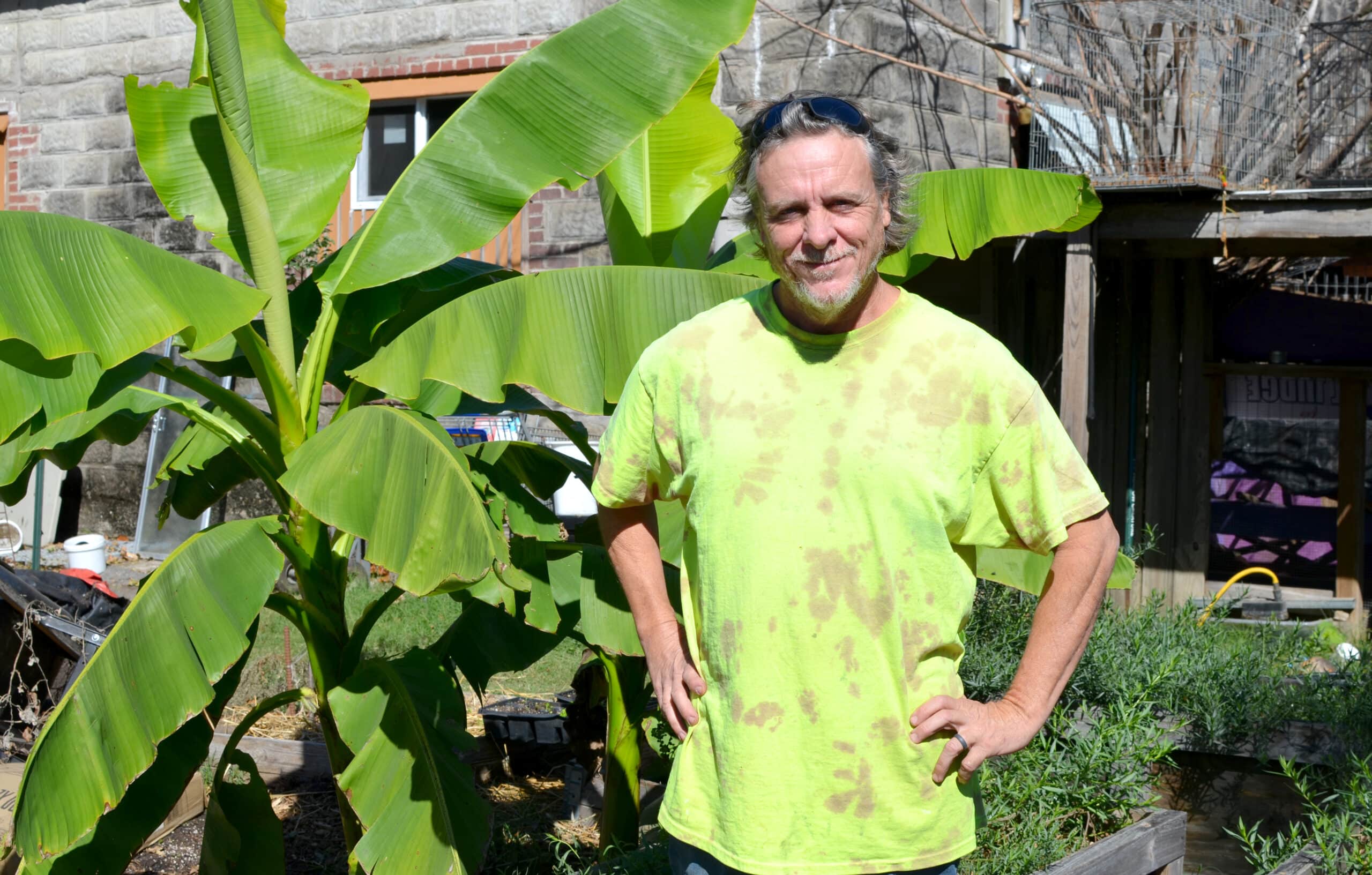Public Health Alum Uses Gardening Expertise to Help Address Arkansas’ Food Access Issues
| Entire communities having little — or no — access to fresh, healthy foods is a major issue in Arkansas.
There are a multitude of nonprofits, ministries, corporations and citizens working to solve the problem. Jimmy Parks, Dr.PH, an alum of the UAMS Fay W. Boozman College of Public Health, is part of a network of people who are teaching and learning about how to grow and share food.
“My community and my family are my life,” Parks said. “It’s not about serving groups or populations. It’s just that being part of a community sometimes involves practical activities that look like service.”
Parks is a self-taught farmer who works with people in many backyard gardens and urban farms in central Arkansas.
“Basically, what I do is a low-wage approach to being part of an increasingly coherent, democratic and healthy community that involves building gardens, chicken coops, beehives and relationships,” he said.
“There’s a lot of good taking place in central Arkansas,” Parks said. “Currently a food hub is being built. A [garden] shop is being designed, and people are learning to build high tunnels, hoop houses, chicken coops, compost bins, greenhouses and relationships.”
Parks, who earned a doctorate from the college in 2014, got his master’s degree in health education administration from the University of Arkansas at Fayetteville and a bachelor’s in psychology/sociology from the University of Arkansas at Little Rock.
While working in health care, Parks became concerned about trends that weren’t in the best interest of people in need. He decided to pursue a public health education with a goal of learning more about the health care industry. He credits the public health perspective he gained at UAMS for helping him see the connection between health systems and people in communities.
There are numerous educational experiences and interactions with faculty, staff and classmates that Parks has fond memories of.
“Kevin Ryan, J.D., Kate Stewart, Ph.D., and several staff, community partners, and my classmates were the most enjoyable part of my experience in the College of Public Health,” he said. “Having coffee, commiserating and scheming with them about addressing oppressive systems and antiquated approaches to health knowledge made the process worth it. The college provided entry into the offices of the Department of Health and UAMS.
“The main reason to go to the school is to interact with decision makers in medicine, academia and public health all in one place. You can’t change the system from there, but you can learn how it works and what needs to change.”
“Public health can provide a perspective on the world and on health systems that help people see how their health is connected to the health of people around them,” he said. “Public health has a broad scope. There’s always something public health related that you want to learn more about. There are a lot of good people at the UAMS College of Public Health to talk to about health.”
